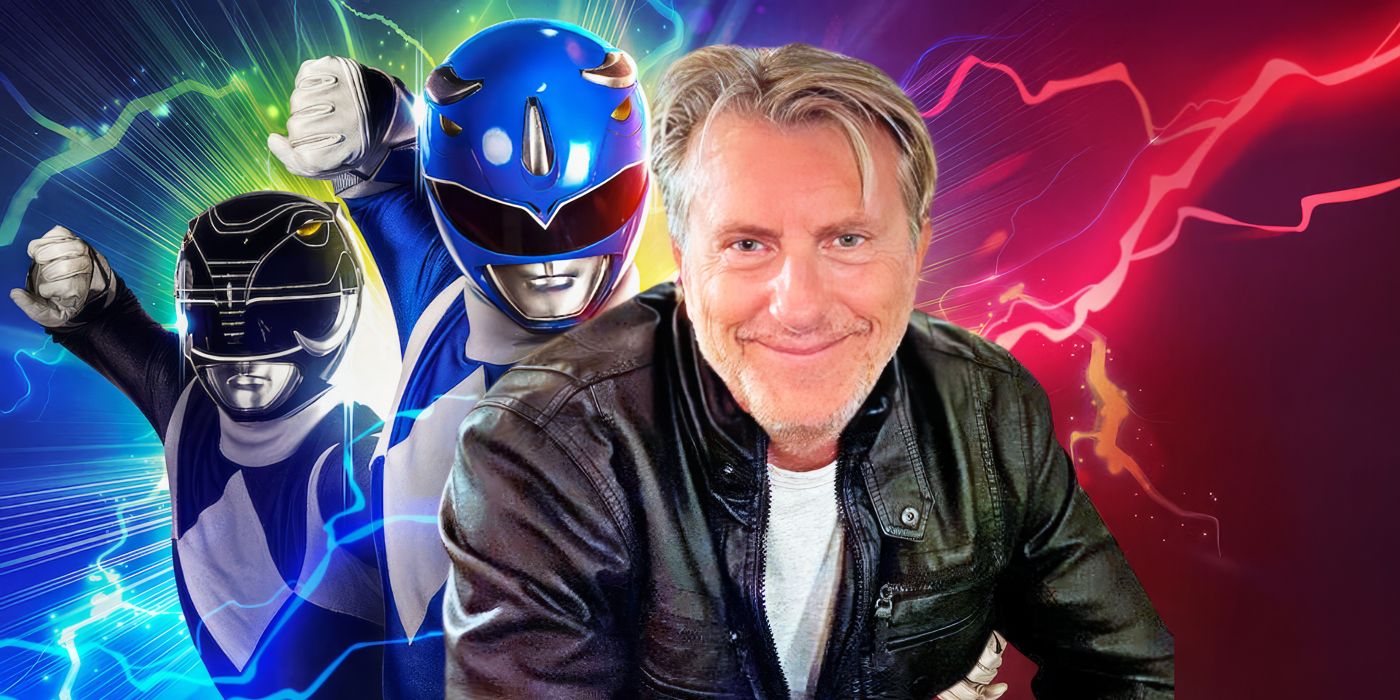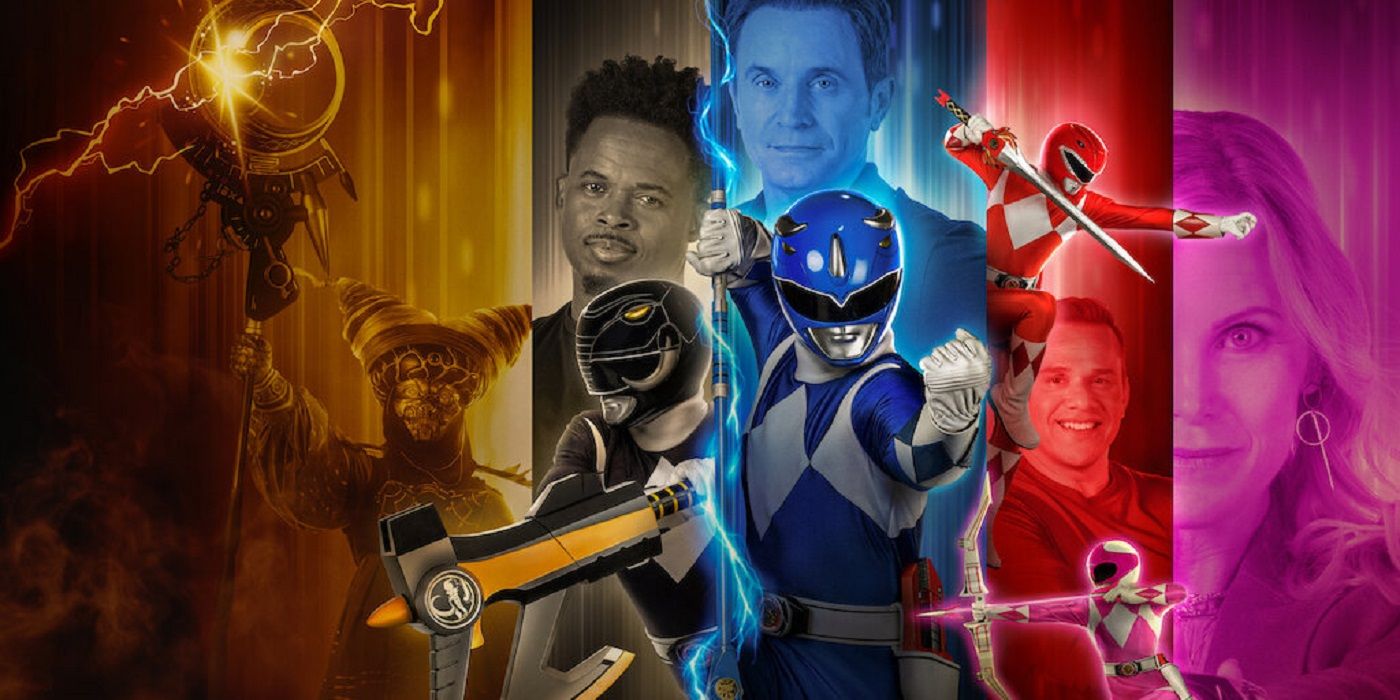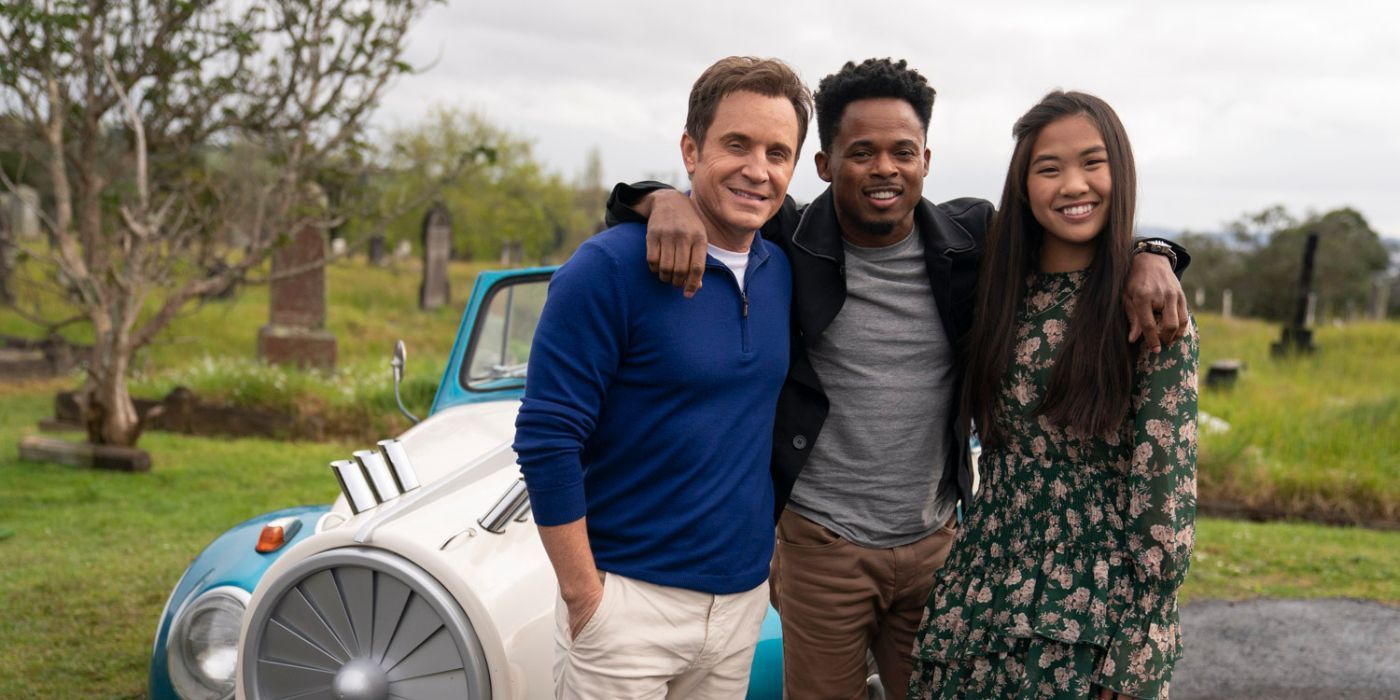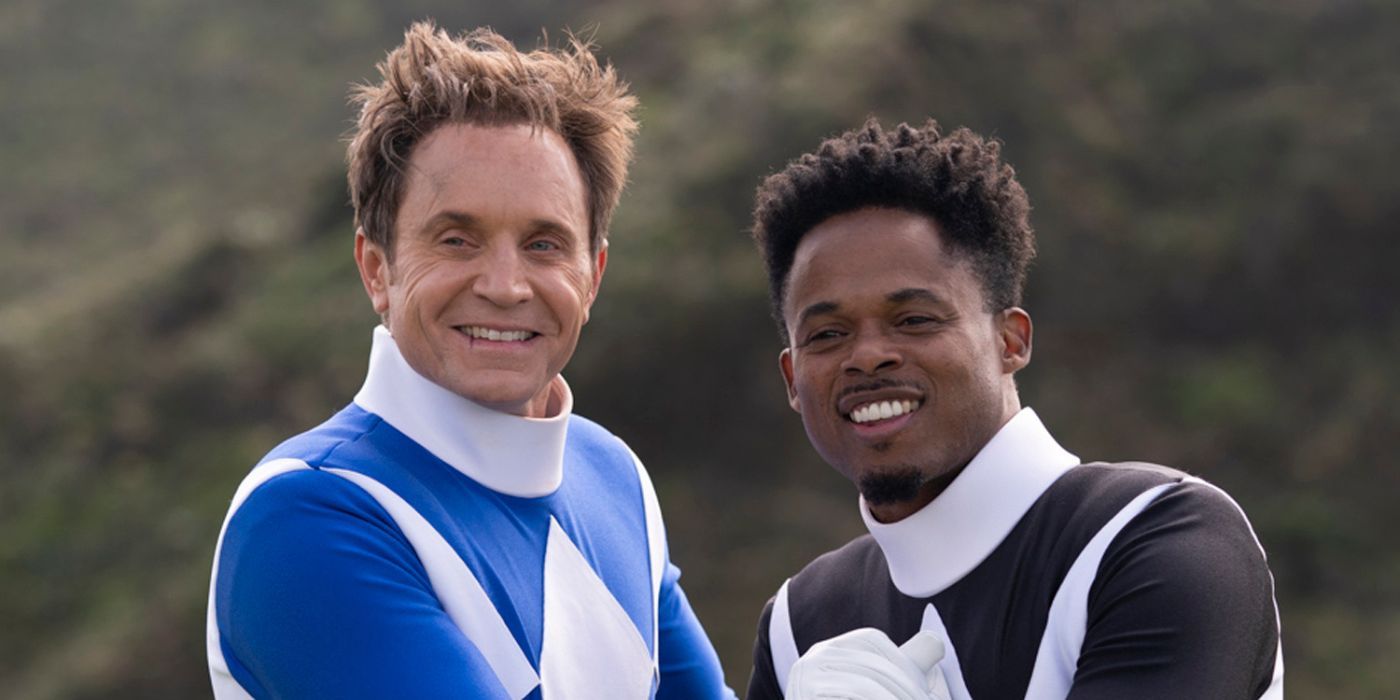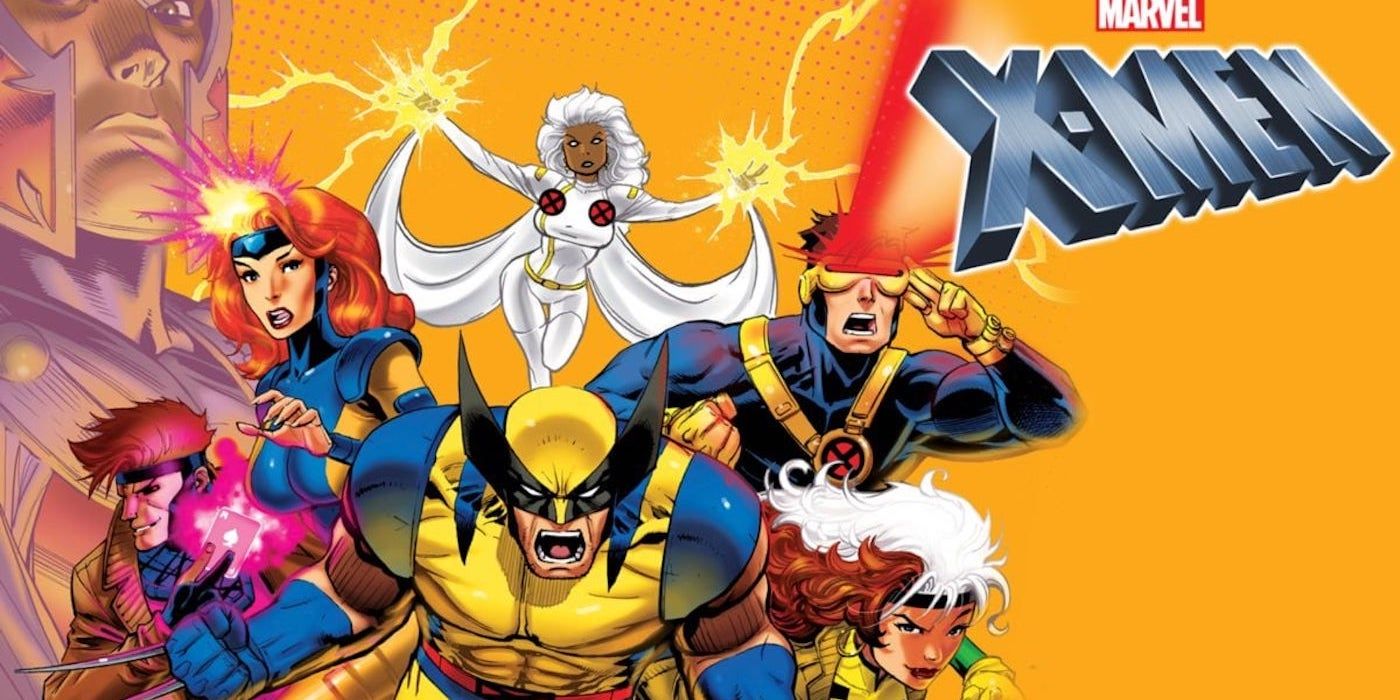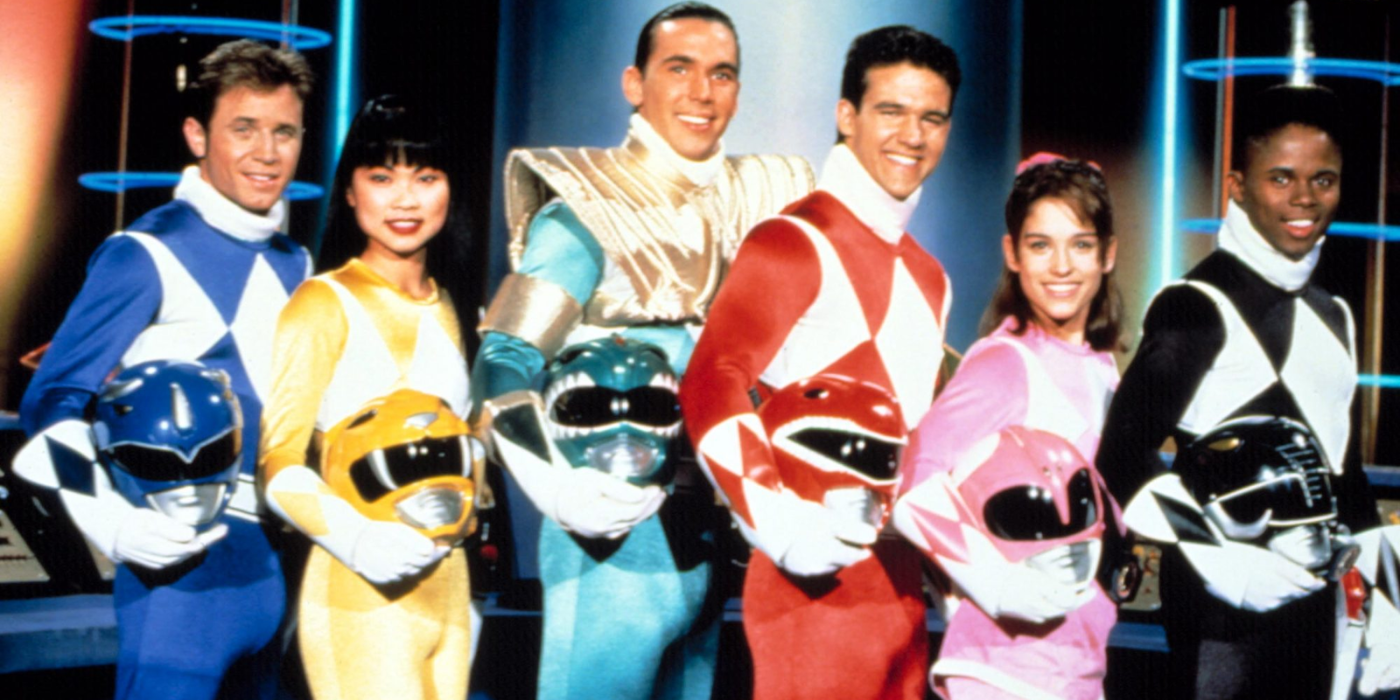The Mighty Morphin Power Rangers defined a generation. The heroic teens took the '90s by storm and have been a mainstay of pop culture ever since. From their megazords and transformations to their insane villains like Rita Repulsa, Mighty Morphin Power Rangers created a full world that is still expanding to this day. One of their most significant accomplishments is their music.
The Power Rangers, and their now iconic theme song, “Go Go Power Rangers,” is known across the globe from die-hard fans to people who’ve never even heard of the show. The man responsible for the metal intro is Ron Wasserman, who has lent his talents to almost every iteration of the Power Rangers since their debut in 1993. With his return to the franchise for the premiere of Netflix’s Mighty Morphin Power Rangers: Once & Always, Wasserman crafts new music and reminds us why his score is so special. Here is our exclusive interview with Ron about his career, Power Rangers, and his time on X-Men: The Animated Series.
MICHAEL THOMAS: So, first off, it's the 30th anniversary of Power Rangers.
RON WASSERMAN: Yeah, unbelievable! It went by like that.
I wanted to get your mindset. You started with Mighty Morphin Power Rangers, and we're going to talk about that in a sec, but just looking back on your career with this franchise, how do you feel 30 years after Mighty Morphin's debuted?
WASSERMAN: Pretty amazed that it's been going for so long, flattered that they asked me to do it, and I had the time of my life scoring this thing. It was so fun, it's one of the funnest things I've done in a while. And at the same time, it's so weird that it's been going on for so long. I mean, it's such a distant memory starting off on that show because I've done so much since, but it was like getting back on a bicycle.
I want to backtrack, though. When you initially did the intro, “Go Go Power Rangers,” for Mighty Morphin, that theme song is iconic as we both know at this point, and I wanted to see what went into the creative process of that. We don't get a lot of power chords in a superhero theme, right? It’s usually like the Superman theme, it's very slowed down. You guys kind of went for a metal feel with the Mighty Morphin Power Rangers theme song. What was the creative process there?
WASSERMAN: I had started at [Saban Films] in ‘89 mixing other composers' stuff. Occasionally they'd say, “Hey, do you want to submit a theme for Bumpity Boo?” or some crazy direct-to-home video thing. And everything I did was fast, and they would say, “You're crazy. Nobody wants stuff that fast.” And then in came [X-Men: The Animated Series] in ‘92, and from that point on, I was the guy and their main composer.
So they came in one night and said, “We have a show called Mighty Morphin Power Rangers.” My direction was, maybe use the word “go,” because Saban made a bunch of money with "Go Gadget Go!" back in the ‘80s. So, it just kind of came to me. I had already had some – because I just like screwing around with it – I already had some great guitar sounds that I could play on keyboard, I know guitar voicings, and that riff just kind of popped up. And from when they said we need it, because they needed it by the next day, it took two-and-a-half hours to complete it, the entire track. So it just poured out of me.
I put on my vocals, I called the next day, and [they] said, “Fox loves it.” And I said, “Who should we get to sing this?” They said, “No, they loved it.” So that started my rock singing career [laughs], which involved gargling ice-cold Diet Pepsi to tighten up my chords so I could get that sound because I'm singing it all through my throat, all those songs. I'm not singing properly.
Listening to not just the Mighty Morphin Power Rangers theme, but also Power Rangers in Space, it felt like there's a lot of – at least to me and my friends – that there's some Foo Fighters-type of chord progressions and chords there, especially their earlier albums. Was there any inspiration?
WASSERMAN: I guess they must have copied me, I think it was before. Foo Fighters, I don't think they were around, I think Nirvana was around at that time. But nah, you know what? My musical taste my entire life was so diverse, so I'd be listening to “Rhapsody in Blue” by [George] Gershwin one day and learning to play it on the piano, and then I'd switch over to “War Pigs” from Black Sabbath. And as time goes on, I've realized more and more that Black Sabbath was probably the main influence over my power chord melodic rhythms. So I think it was really that.
Now that you mentioned it, I can see the influence there. It's clearly your own style with your music, but yeah, Black Sabbath makes total sense. I've noticed when watching a lot of film and television, you've got the main theme, the orchestral big set piece of the music, but then it's just the small riffs and melodies that are sprinkled throughout the actual show. I know you did work on Dragon Ball Z and SpongeBob SquarePants, as well. What's your approach when it comes to making the original score?
WASSERMAN: Well, obviously I was gonna try and rock it out as much as I could because they were always in their fights, and it was the most appropriate thing to do. And certainly doing an orchestral mockup back in 1993, ‘94, ‘95 was not nearly as easy as it is today. And then I gave certain characters their own theme. Rita had a theme, of course, Bulk and Skull had their theme where I used, for him because he was fat, a tuba, and then Skull was this little skinny guy so I used a muted trumpet for that and a little drum loop. But the Rangers themselves – other than when they specifically said, “We want a song, “Go Green Ranger Go,” which was simple to do –the Rangers themselves never really had a theme other than when they were fighting. Obviously, I threw in the main title theme whenever I could, that melody, just to pound it in somebody's brain.
In other shows, sometimes they don't want themes for the characters, which is fine. And in this 30-year special, Rita is the only one that has her own little theme, a little three-note theme, which is a hell of a lot darker than it was way back when.
I did just watch this special a few days ago, and what we do with like Robo Rita in this movie is so mind-blowing, and then you kind of compound that with the theme that you gave her as, quote-unquote, simple as it is. It just makes it even more intimidating and immersive, and that's what I really love about your music. Again, like we were saying before, you've got the big set piece with the “Go Go Power Rangers,” but that Rita theme, it's bone-chilling.
WASSERMAN: Yeah, it's just a dark three-note bom bom bom, just made her sound heavy. It was a little tip of the hat to Lord Zedd's theme back in the day. Just a little, little teeny one. She needed something, I mean, it's a completely different Rita, she used to be quirky and kind of silly. In this she's a completely evil woman.
It's an entirely different character, and I love how the film starts off with that gut punch, and when that theme kicks in, it's like, “Okay, the stakes are high.”
WASSERMAN: Yeah, the stakes are high, and I love the way they started it with the storyline and where we are, and then kicked right into it. It's really well done, really, really well done. When I was scoring this, I received the cut maybe December 5, then had a spotting session with the director, started on the seventh, and took about five weeks, worked on it every day, and it was really intense, but I didn't have all the dialogue. So there were a lot of times I would just be watching the Rangers and have to figure out something bad's coming or look ahead because I had no idea what they were gonna say. Luckily it all worked out.
The CGI wasn't finished, so I would have wire images, and sometimes they threw in the old Japanese footage, saying, “It'll look like this.” So it was kind of a skeleton in places, and whoever temped in Rita's voice, because they didn't have the final yet, was actually pretty funny. It kept changing, so I guess whoever was in the room with the editor just said some of her lines, so you'd have the editor going, “I'm gonna take you Rangers down!” I think the first one I heard was a guy doing a high voice. I'm like, “That cannot be Rita’s voice.”
I'm impressed that you were able to make that work, that would have been so distracting for me. I don't know if I would been able to focus.
WASSERMAN: [Laughs] It's happened before so you get used to it. You know you're gonna get it. And then they would send me updated cuts and I'd have more and more dialogue, go back and check stuff, and make sure I didn't do something dark when they're telling a joke or something. But there's really no joking around in this thing. There's the one two-second Bulk and Skull billboard. That's really the only funny thing that ever happens.
Yeah, it keeps the spirit and the heart of the original show, but it does evolve because of that more mature tone, which again, 30 years later, the audience for this thing has matured as well, I would say. So I think that's a perfect evolution, and that brings me to my next question. You already said you had a blast scoring this new movie. Once you get to Mighty Morphin Power Rangers: Once & Always, were you really just going back to your old tracks and trying to freshen them up, or did you have a completely different mentality?
WASSERMAN: No, a completely different mentality, which I've done on every show that I've ever scored for, from America's Next Top Model to Hot in Cleveland or with Cedric the Entertainer, or comedies, some dark stuff, a lot of games, a ton of commercials – I start with a blank template every time. Other composers have several templates, they'll put their orchestral template, or this or that, and that's fine. I start with zero, a click track, I start watching, I figure out what'll hit. I can pretty much look and know what tempo to set things at, and then I start digging for sounds, other than obviously, I had the guitar sound ready. Because I want to, also, use the latest stuff. Plus, while scoring it, new libraries came out, so I would check them out on YouTube and I'd go, “Oh, there's a sound I can use for this part,” and I'd grab that and incorporate it. So that keeps it fresh and exciting for me.
So, yeah, there was nothing recycled. Plus, unfortunately, other than on the shows, I don't have any of the original score, and from what I know all those masters are long gone. All the tracks are gone, everything is gone. It all happened when Saban sold it to Disney in 2001. They fell off the face of the planet.
Wow, I was going to ask you about that. We haven't really had a lot of albums or remasters of the original score, and I guess that's part of the reason why?
WASSERMAN: Yeah, it's all gone. And X-Men and Sweet Valley High, and probably Dragon Ball Z. I mean, it's just– the stuff's gone. But it was also a different format back then, everything was being recorded to, first, analog tape, then we moved up to these digital machines, TASCAM DA-88s. I think we had eight tracks per machine, so you'd sync the three of those. They were good, but then you’d deal with a lot of dropouts.
It really wasn't until I was doing a couple of albums with this guy, Jon Anderson from Yes, and a guy from Digidesign back then, prior to Abbott, came in and said, “Hey, we're going into digital audio recording,” and that's when I just started making that transformation, which was a mess for years. It was hard, not for me, the technology was very clunky. It would work, it wouldn't work, it wouldn't go and record, you’d get the spinning beach ball, the computer crashed. Only really in the last year or so has it become spectacular.
That's really unfortunate. I just can't fathom all the work that you and everybody in that time period went through just to have them say, “Oh, yeah, it's gone. Even though you tried to back it up, it's gone.”
WASSERMAN: Yeah! It's gone. When they started doing TV shows and shooting it on video – I can't remember, I'll probably be wrong – I think it was like a one-inch digital tape. So, they've brought back all these series at Netflix, and everybody wants the old sitcoms just to air them, but a lot of them had so many dropouts, they just couldn't even bring them back because the tapes weren't stored right.
But now I have everything I've done since 1998. I have 130 hard drives, everything is cataloged, it's total so much redundancy. Anything I ever need to find I can pull up in no time. But prior to that, poof!
That's wild in such a short amount of time, though, because that's only like three or four years earlier.
WASSERMAN: Yeah, it’s crazy. Because normally I would have backed the stuff up if it was today, and I'd have copies at home, so I'd have all that score. I know I have a few digital audio tapes, small DAT tapes, that probably have some stuff, but it was such a– it was difficult to make copies of that stuff back then.
Speaking of some of your older work, though, you already mentioned it. We've got to talk X-Men: The Animated Series.
WASSERMAN: Oh, good!
I love the X-Men. When Marvel Studios started using your theme in Doctor Strange in the Multiverse of Madness and Ms. Marvel, did they contact you at all, or was that a surprise to see it?
WASSERMAN: It was a total surprise, mainly because those days at Saban – and I knew the deal going in and I've never been upset about it, but they took all the rights from anybody who wrote everything. So if there was a deal to be done, if it was going to be licensed or used, I'd be the last person to find out, and I was. Actually, a couple of people sent me clips online. I had no idea, but I was flattered. I got the chills. It feels great.
As a fan, when I hear that music and I see Professor X roll in the room in Multiverse of Madness, it does have that chill factor. And then Disney announces X-Men ‘97. Are you involved in that at all?
WASSERMAN: I haven't heard a thing from them. I've tried to get in there and my connections at Disney said Marvel is a whole different planet than we are. So basically, they said good luck. I think it's supposed to come out in the fall, so they should be getting right to the point where they've even either picked somebody, or– it's Marvel, I mean, I don't know, I don't know. They may very well call in 10 minutes, or I'll never hear from them. I have no idea.
Yeah, that's interesting because the X-Men as a Marvel IP are iconic on their own, right? So the fact that your theme song, to this day, is still carried with them, I think is a testament to the work you've put in and everything you've done for X-men.
Going back to Power Rangers, though. It’s the same thing, right? We've been talking about, not just Mighty Morphin Power Rangers, but so many different iterations. You've worked on so many different series, and you've already talked about your creative process of how you really don't go back to anything, you always want to create something new and exciting. What, to you, is the sound of Power Rangers?
WASSERMAN: That's a difficult question. It's not exactly heavy metal. People have called it that, it's really not. It's more like speed metal, sort of, but it's not quite as heavy, and I think that's because of the vocals, really. Normally you'd have groups like that, and you have somebody with the [makes guttural noises], you'd have that deep, grungy chord voice. Actually, I love that stuff. So I guess I would– it's not pop metal, it's it’s own thing. It's hard to describe.
The closest I've heard to it is like when Metallica did Hardwired… to Self-Destruct, and I just went, “Wow, they're hitting that speed, they're hitting those things.” I mean, I absolutely loved it because it's flying at such a fast pace. I do have a connection to one of the guys, I wanna say, “Next thing I do is gonna be two beats per minute faster. Try and beat that Lars [Ulrich].” [laughs]
That's amazing. I think we can dub this Mighty Morphin metal, then.
WASSERMAN: Mighty Morphin metal! 30 years, nobody said that, perfect! Mighty Morphin metal, brilliant.
You've created your own sound; therefore, it gets its own category.
WASSERMAN: [Laughs] Good, I love it.
One more question before I have to let you go, do you have a favorite track or song that you've created in your career?
WASSERMAN: Well, I had a band with my ex-wife, we got signed to Universal. The name of the band is Fisher, there's now a DJ that took the name, which has just screwed everything up as far as people searching, but there's a song called “I Will Love You,” which is a piano vocal ballad. And we were the first piano vocal ballad to break Top 40 radio in the year 2000, since the early mid-fifties. So we were kind of pre-Adele. We didn't open the door for Adele, but we were the first Adele.
And then with Power Rangers, “We Need a Hero” is by far my favorite song because there's a little bit of sadness in it. It's about not having clear leaders, either politically or heroes for kids, or people making changes socially. It was just– everything was starting to dissolve, it started to become nothing but promises that they didn't follow through on. So to me, it's my view of the world.
“We Need a Hero,” I was actually just listening to that yesterday as we were preparing, and yeah, compared to some of the other tracks in the Power Rangers pantheon, I will say that that one definitely stands out to me too. So yeah, great answers. Was there anything else that you had coming up that you wanted to let the readers know about?
WASSERMAN: Well, I have a video game called The Next World, which I've been working on and off for five years, and supposedly it's coming out later this year. Giant RPG game, it's great, and hopefully it happens. There's been delays for various reasons, and I think a week from Sunday they're debuting the trailer on YouTube, but it was also supposed to happen last Sunday, so I'm not positive. And then I have other projects coming up, but you have to sign nondisclosure agreements, so I can't discuss those yet, which is actually good because if I don't get it then nobody ever knows I lost it! [laughs]
Mighty Morphin Power Rangers: Once & Always is available to stream on Netflix.

